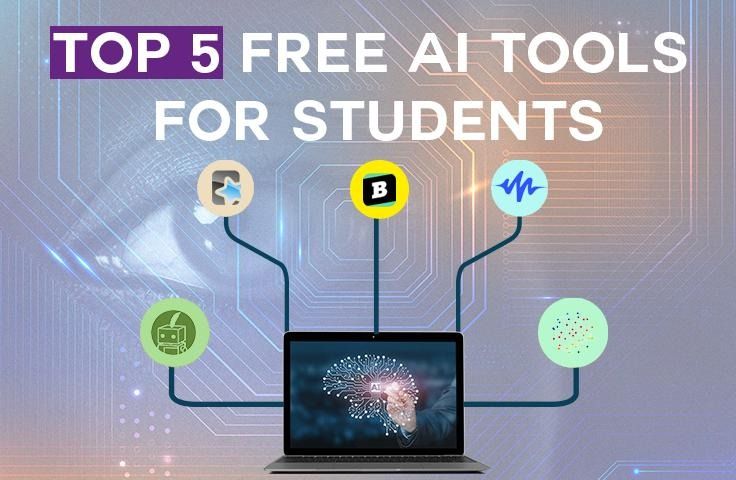

Welcome to our comprehensive guide on AI tools revolutionizing education and creativity. Let’s learn more about this topic below with Bottle Flip, as we explore how these innovative technologies are reshaping learning experiences and creative processes in the digital age.
Artificial Intelligence (AI) has emerged as a game-changing force in various sectors, and education and creative industries are no exception. As we delve into the world of AI tools for students and creators, it’s essential to understand the profound impact these technologies are having on learning methodologies and creative processes. AI-powered tools are not just enhancing efficiency; they’re revolutionizing the way we acquire knowledge, solve problems, and express creativity. From personalized learning experiences to advanced content creation assistants, AI is opening up new possibilities that were once thought impossible. The integration of AI in these fields is creating a symbiotic relationship between human intellect and machine capabilities, leading to smarter, more innovative outcomes. As we explore these tools, keep in mind that they are designed to augment human abilities rather than replace them, fostering a new era of enhanced learning and creativity.
The educational landscape is undergoing a significant transformation with the introduction of AI-powered tools. These innovative solutions are designed to cater to diverse learning styles and needs, making education more accessible and effective for students of all ages. One of the most notable advantages of AI in education is its ability to provide personalized learning experiences. By analyzing individual student data, AI algorithms can identify strengths and weaknesses, adapting the curriculum to suit each learner’s pace and style. This level of customization was previously unattainable in traditional classroom settings.
Among the plethora of AI tools available for students, some stand out for their exceptional capabilities. Intelligent tutoring systems, for instance, use AI to provide one-on-one guidance, mimicking the experience of having a personal tutor. These systems can answer questions, provide explanations, and even anticipate areas where a student might struggle. Another groundbreaking application is in the realm of language learning. AI-powered language apps can now offer immersive experiences, using speech recognition and natural language processing to help students improve their pronunciation and conversational skills.
For research and writing tasks, AI tools have become indispensable. Advanced research assistants can sift through vast amounts of data, helping students find relevant information quickly and efficiently. Writing aids powered by AI can assist in grammar correction, style improvement, and even help in structuring complex academic papers. These tools not only save time but also help students develop better writing skills by providing instant feedback and suggestions.
In the realm of STEM education, AI is making complex subjects more accessible. Virtual labs and simulations powered by AI allow students to conduct experiments and explore scientific concepts in a safe, controlled environment. This is particularly beneficial for schools with limited resources or for distance learning scenarios. AI-driven math tutors can break down complex problems, providing step-by-step solutions and adapting their teaching methods based on the student’s responses.
Personalized learning platforms represent one of the most significant advancements in educational technology. These platforms use AI algorithms to create tailored learning paths for each student. By analyzing performance data, learning preferences, and even behavioral patterns, these systems can adapt in real-time to provide the most effective learning experience. For instance, if a student excels in visual learning but struggles with text-based content, the platform might automatically adjust to include more diagrams, videos, and interactive elements.
These platforms often incorporate elements of gamification, making learning more engaging and enjoyable. By turning educational content into interactive challenges and rewards, they tap into students’ natural inclination for play and competition. This approach not only makes learning more fun but also increases retention and motivation. Some advanced platforms even use AI to predict future performance and identify potential learning difficulties before they become significant issues, allowing for early intervention and support.
AI-powered study assistants are revolutionizing the way students approach their coursework and exam preparation. These intelligent tools go beyond simple scheduling and note-taking functions. They can analyze a student’s study habits, course materials, and performance data to create optimized study plans. For example, an AI study assistant might notice that a student performs better on quizzes taken in the morning and automatically adjust the study schedule to capitalize on this peak performance time.
These assistants can also generate practice questions based on the student’s weakest areas, ensuring that study time is used efficiently. Some advanced systems can even simulate exam conditions, providing realistic practice scenarios that help reduce test anxiety. Furthermore, AI study assistants can integrate with other learning tools and platforms, creating a cohesive ecosystem that supports all aspects of a student’s academic life. From managing deadlines to providing motivational support, these AI companions are becoming an essential part of modern education.
The creative industry is experiencing a renaissance thanks to AI tools that are pushing the boundaries of what’s possible in art, design, writing, and music. These tools are not replacing human creativity but rather enhancing it, offering new avenues for expression and efficiency. For content creators, AI has become an invaluable assistant, capable of generating ideas, streamlining workflows, and even producing content alongside human creators.
In the realm of visual arts and design, AI-powered tools are making waves. Generative AI systems can create stunning artwork, logos, and designs based on text prompts or style references. These tools are particularly useful for concept artists and designers who need to quickly generate multiple ideas or variations. Advanced photo and video editing software now incorporate AI to automate tedious tasks like background removal, color correction, and even video editing, allowing creators to focus more on the creative aspects of their work.
For writers and content creators, AI writing assistants have become increasingly sophisticated. These tools can help with everything from generating article outlines to producing full drafts of content. They’re particularly useful for overcoming writer’s block, offering suggestions and alternative phrasings. Some AI writing tools can even adapt to different writing styles and tones, making them versatile for various types of content creation, from blog posts to marketing copy.
In the music industry, AI is making composition and production more accessible than ever. AI-powered music creation tools can generate melodies, harmonies, and even full tracks based on user inputs. These tools are not just for amateur musicians; even professional composers are using AI to explore new musical ideas and streamline their workflow. Some AI systems can analyze popular songs and create original compositions in similar styles, offering endless inspiration for musicians.
For digital marketers and social media creators, AI tools are revolutionizing content strategy and creation. These tools can analyze trends, predict audience engagement, and even generate social media posts tailored to specific platforms and audiences. AI-powered analytics tools provide deep insights into content performance, helping creators optimize their strategies for maximum impact.
The integration of AI in graphic design and visual arts is transforming the creative process. AI-powered design tools can now generate complex designs, illustrations, and even 3D models based on simple text descriptions or rough sketches. This capability is particularly valuable for conceptual stages of projects, allowing artists and designers to quickly visualize ideas and explore multiple directions. Some AI tools can even learn an artist’s style and generate works that mimic their unique aesthetic, opening up new possibilities for style exploration and production scaling.
In the realm of photo editing, AI is making advanced techniques accessible to amateurs while saving time for professionals. Features like intelligent object selection, sky replacement, and portrait enhancement are now common in popular editing software, powered by sophisticated AI algorithms. These tools not only speed up the editing process but also allow for more complex manipulations that were once the domain of highly skilled professionals. For graphic designers, AI-assisted layout tools can analyze content and automatically suggest optimal arrangements, streamlining the design process for publications, websites, and marketing materials.
The world of content creation and writing has been significantly impacted by AI tools. These technologies range from advanced grammar checkers to full-fledged content generators. For writers, AI assistants can help overcome creative blocks by suggesting plot ideas, character developments, or even generating entire paragraphs based on a given prompt. This is particularly useful for fiction writers looking to explore new narrative directions or non-fiction authors seeking to expand on complex topics.
In the realm of digital marketing and SEO, AI tools are becoming indispensable for content strategy. These tools can analyze top-performing content in specific niches, suggesting topics and keywords that are likely to engage audiences and perform well in search rankings. Some advanced AI writing assistants can even adapt their output to match specific brand voices or writing styles, ensuring consistency across various content pieces.